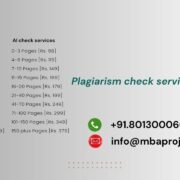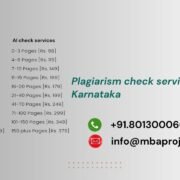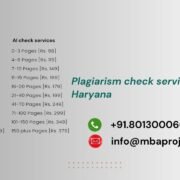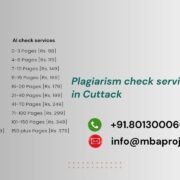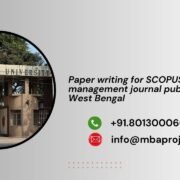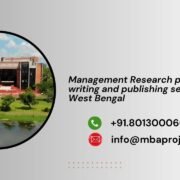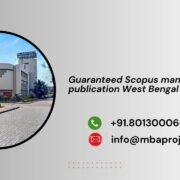Plagiarism check services in Kerala
Plagiarism check services in Kerala
Plagiarism check services in Kerala. In the modern academic landscape, originality and research integrity are the pillars of success. Whether you are a student, research scholar, or academic professional in Kerala, ensuring that your work is plagiarism-free is crucial for maintaining credibility and achieving publication success. Our Plagiarism Check Services in Kerala are designed to help universities, colleges, and independent researchers achieve the highest standards of originality and compliance with UGC, AICTE, and NAAC guidelines.
Why Plagiarism Checking Is Crucial for Students and Researchers in Kerala
Kerala is home to prestigious institutions such as the University of Kerala, Cochin University of Science and Technology (CUSAT), Mahatma Gandhi University, Amrita Vishwa Vidyapeetham, and IIT Palakkad. These universities enforce strict plagiarism policies, often limiting similarity percentages to 10%–15%.
Submitting work without a proper plagiarism check can result in thesis rejection, academic penalties, or delayed publication. Our service ensures that your work meets institutional originality standards while maintaining the academic tone and integrity of your writing.
Advanced Plagiarism Detection Tools We Use
We rely on globally recognized plagiarism detection software to provide accurate, reliable, and comprehensive reports. The tools we use include:
- Turnitin Originality Check
- iThenticate (Preferred for Research Publications)
- Grammarly Premium Plagiarism Checker
- Urkund (Ouriginal)
- PlagScan and Copyscape Premium
These tools scan your document across academic journals, conference papers, books, and billions of online sources, ensuring that even the smallest duplication is detected and flagged.
Our Step-by-Step Plagiarism Check Process
- Secure Submission
Upload your thesis, dissertation, or paper via our encrypted platform ensuring 100% confidentiality. - AI-Powered Scanning
Our advanced plagiarism software checks every sentence for similarity and citation accuracy. - Comprehensive Report Generation
You receive a detailed similarity report showing the exact percentage, matched sources, and highlighted areas for correction. - Expert Interpretation and Advice
Our academic experts review your report and guide you on how to reduce plagiarism effectively through paraphrasing and citation improvement. - Final Verification and Re-Check
After implementing corrections, you can request a final re-check to ensure your document achieves the required originality percentage.
Documents We Accept for Plagiarism Checking
Our Plagiarism Check Services in Kerala cover a wide range of academic and professional documents, including:
- PhD and MPhil Dissertations
- MBA and Master’s Theses
- Research and Review Articles
- Conference Papers
- UGC CARE, Scopus, and SCI Journal Manuscripts
- College Assignments and Reports
- Project Proposals and Presentations
We offer specialized plagiarism reports that align with university norms and international publication requirements.
Key Features of Our Plagiarism Check Services in Kerala
- Turnitin and iThenticate Certified Reports
Accepted by universities and journals globally. - Complete Confidentiality and Security
Your documents are never shared, saved, or resold. - Fast and Accurate Results
Receive reports within 6–24 hours, depending on document length. - Expert Consultation for Plagiarism Reduction
Professional editors help you rewrite or paraphrase plagiarized sections. - Affordable Pricing Plans
Flexible packages for students, institutions, and researchers. - Multiple Re-Checks
We offer free re-checks after revisions to ensure 100% originality compliance.
Plagiarism Reduction and Rewriting Assistance
Detecting plagiarism is just the first step — eliminating it effectively is equally important. Our team of academic editors and subject matter experts help you rewrite, paraphrase, and reformat plagiarized text while retaining the original meaning and tone. We ensure that the final version of your document maintains academic accuracy and readability with less than 10% similarity as per university guidelines.
Our rewriting process uses AI-assisted paraphrasing combined with human editing to ensure that your content remains unique, clear, and professional.
Why Choose Our Plagiarism Check Services in Kerala
Here’s why thousands of students, scholars, and universities across Kerala trust our services:
- University-Accepted Turnitin and iThenticate Reports
Fully compliant with academic integrity standards. - Support Across Major Cities
Available in Thiruvananthapuram, Kochi, Kottayam, Calicut, and Thrissur. - Trusted by Top Universities
We work with students and researchers from CUSAT, IIT Palakkad, Amrita University, MG University, and Kannur University. - Expert Academic Editors and PhD Consultants
Our team includes professionals with deep experience in research methodology, publication ethics, and academic writing. - Round-the-Clock Support
Get real-time updates and customer assistance 24×7.
Plagiarism Check for Journal Publication in Kerala
For scholars aiming to publish in Scopus, SCI, ABDC, or UGC CARE-listed journals, plagiarism compliance is non-negotiable. Our iThenticate-powered reports are recognized by major publishers such as Elsevier, Springer, Wiley, Taylor & Francis, and Emerald.
We help you ensure that your research article meets the originality standards required by journal reviewers and editors. Our editorial experts also provide guidance on plagiarism reduction, reference citation, and formatting to increase your publication success rate.
Universities and Institutions We Serve in Kerala
We proudly support students, researchers, and faculty members from leading institutions such as:
- University of Kerala
- Cochin University of Science and Technology (CUSAT)
- Mahatma Gandhi University (MGU)
- Amrita Vishwa Vidyapeetham
- Indian Institute of Technology (IIT) Palakkad
- Calicut University
- Kerala Agricultural University
- National Institute of Technology Calicut (NITC)
- Sree Sankaracharya University of Sanskrit
Our plagiarism reports comply with each institution’s specific plagiarism threshold and formatting requirements.
Benefits of Using Professional Plagiarism Check Services in Kerala
- Avoid Academic Misconduct and Rejection
Prevent plagiarism-related penalties by ensuring originality. - Improve Academic Credibility
Build a strong academic profile with verified originality. - Save Time and Effort
Quickly identify and fix issues before submission. - Enhance Publication Chances
Meet publisher originality requirements and avoid desk rejections. - Peace of Mind
Submit your work confidently, knowing it’s verified for plagiarism.
Get Your Document Checked Today
Whether you’re a PhD candidate, postgraduate student, or journal author, our Plagiarism Check Services in Kerala provide fast, confidential, and reliable solutions for ensuring academic integrity.
We combine cutting-edge technology, academic expertise, and professional support to help you maintain authenticity and compliance with university and publisher standards.
Submit your document today and receive a detailed plagiarism report within hours—your trusted path toward originality starts here.
Thank you for reading our Blog “Plagiarism check services in Kerala”.
Also, read our more BLOG here.
For Order “Plagiarism check services” feel free to contact us at Mob: Call / WhatsApp: +91.8013000664 || Email: info@mbaprojects.net.in





